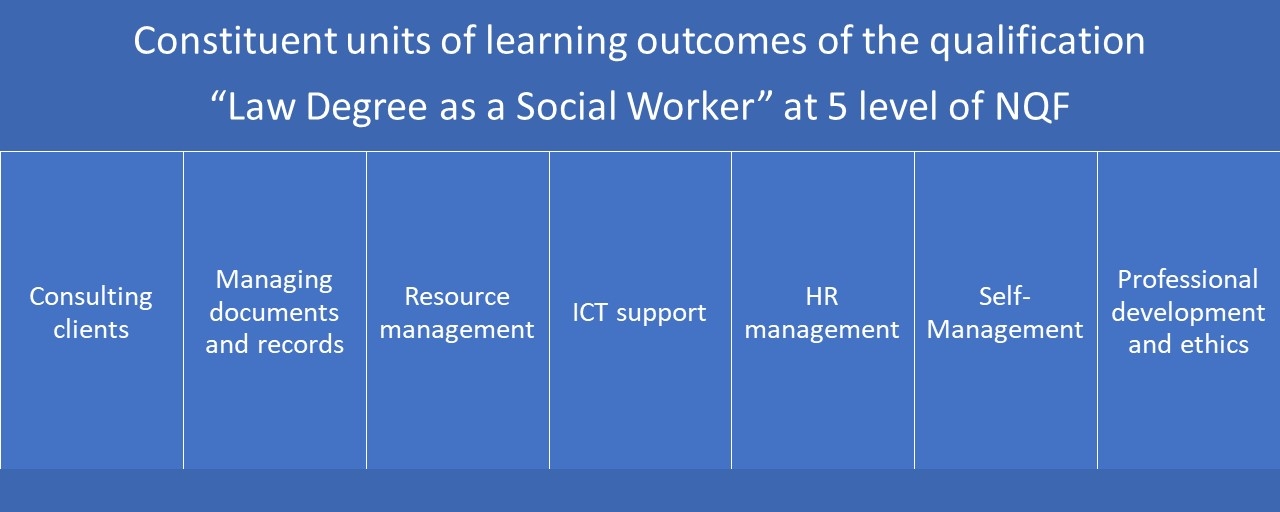Discussions about ways to gain unique skills and award micro-credentials have become very popular recently. Teachers and heads of VET institutions often ask me how, in fact, to organize the educational process so that micro-credentials can be certified: “We have full-fledged training programmes in the college, about 30, we have approximately 80 professional development courses: what are micro-credentials and how to distinguish them from our full qualification programmes and what to turn into what?” I will try to share my thoughts on how to start creating small programmes and then offer them to the educational market as micro-credentials. To start a conversation, of course, let's turn to official information.
Discussion about Micro-credentials in Central Asian Countries
This problem manifested itself, in particular, in Kazakhstan after the adoption of the Concept of Lifelong Learning by the Government of Kazakhstan in July 2021, where, in particular, it was stated: “At all levels of education, the opportunity of obtaining micro-credentials should be given to all citizens, taking into account the results of nano-learning ( "Nanodegree"), which allows citizens to acquire the necessary professional skills in a short time, build own individual learning paths and eliminate knowledge gaps.” The Republic of Uzbekistan is still considering this issue, since according to the Decree of the President “On additional measures to further improve of the VET system” in September of 2019, it is necessary to constantly update educational programmes based on innovative approaches to education, retraining and continuous professional development of managerial and teaching staff. Moreover, a number of educational institutions have already begun work on fragmenting educational programmes and turning them into coherent sets of Units of Learning Outcomes. In March 2020, the Ministry of Labor, Migration and Employment of the Republic of Tajikistan, in partnership with UNICEF in Tajikistan, opened a training center for remote employment in Dushanbe with a focus on young employees who can perform certain jobs using digital skills, which are known in today's markets as "microwork”.
What is a micro-credential?
A micro-credential is a short, competency-based recognition that allows to demonstrate mastery in a particular area, it is like a futureproof your career and it is designed to be:
- Personalized: You can create your own learning journey, based on your interests and career goals, gaps in your skills, and your specific needs.
- Flexible: You can study when it’s convenient for you, alone or with your peers.
- Performance-based: Unlike “sit-and-get” certifications, micro-credentials are awarded based on demonstrated mastery of the subject matter, not just for showing up.
Micro-credentials are units of assessment that are smaller than traditional programmes of learning such as degrees and diplomas. They demonstrate that a learner has mastered a certain skill-set or demonstrated a level of achievement in a particular area. VET providers can award micro-credentials demonstrating the skills that employers need.
The European approach to micro-credentials integrates flexibility and inclusive learning opportunities. Micro-credentials certify the learning outcomes of short-term learning experiences, for example a short course or training. Given their flexibility, micro-credentials can be designed and delivered by a variety of providers in many different formal, non-formal and informal learning settings. These opportunities are made available by a wide variety of public and private providers in response to the demand for more flexible, learner-centred forms of education and training.
Unique and constituent micro-credentials
Obviously, micro-credentials can exist independently as confirmations of a unique competence, let's call them unique micro-credentials, or be components of some large programmes resulting in full-fledged qualifications, let's call them constituent micro-credentials. If we have come up with a short-term upskilling programme for professional development and see that at the end of it students will gain a specific set of knowledge and skills, then we act as usual. We highlight specific learning outcomes, criteria and assessment methods, thinking also over interesting learning content and innovative teaching methods to offer this course for earning a unique micro-credential. A more systematic approach to creating a whole family of micro-credentials that we can offer on the educational market is associated with the use of functional analysis and the construction of a functional qualification map in the form of a set of units that make up this qualification, as shown in this resource.
An example of a constituent micro-credential
Let us give an example of the decomposition of the qualification “Law Degree as a Social Worker” at 5 level of NQF into units of learning outcomes. The constituent units of learning outcomes of the qualification are shown in the figure below. If the units are correctly identified and performed, as recommended in this resource, then we get the opportunity to bring 7 micro-credentials, belonging to the constituent type, to the educational market almost immediately. If a learner collects all these units, then the diploma award follows based on previous constituent micro-credentials.

The possible content and structure of such units for processing with constituent micro-credentials are presented in sample units "Managing documents and records" in English and Russian. This approach to the creation of full qualifications and micro-credentials follows the very simple idea to give an additional opportunity to learners to accumulate and transfer micro-credentials if later a full qualification is needed, because the education and training offer must be lifelong where individual learning accounts can greatly contribute.
Other sample units decomposing 24 qualifications on 4-5th levels of NQF may be found on the webpage.
Useful Resources
Micro-credentials are coming- Do you agree?
Micro-credentials: are they part of the future of VET?
Recognising lifelong learning requires recognising micro-credentials
ALL DIGITAL’S POSITION ON THE PROPOSED COUNCIL RECOMMENDATION ON INDIVIDUAL LEARNING ACCOUNTS (ILAS)
Video of a policy event on the European Commission proposals for Council Recommendations on Individual Learning Accounts and Micro-credentials.

Please log in or sign up to comment.